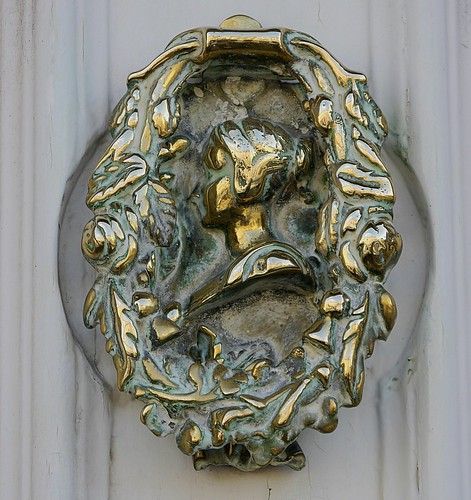Photographed in the American Cemetery in Madingley, near Cambridge, where nearly 4,000 US soldiers, sailors and airmen killed in World War II are buried.
Daily Archives: October 23, 2011
The march of folly
The nemesis that perceptive economists like Paul Krugman have been predicting has arrived: stagflation — the grim confluence of inflation and economic stagnation. And what’s really eerie is how nobody in power in Britain can talk about it, let alone admit it. As Will Hutton puts it in today’s Observer.
The way we analyse and discuss our plight is crazily upside down. The Department for Business, which does have some interesting ideas for how to promote innovation, is browbeaten by the wider politics into making it a priority to take the ‘burden’ off business, allegedly to stimulate growth. Yet on most benchmarks, the UK is already the most lightly regulated member of the EU. It is absurd to characterise regulation and red tape as principal sources of the UK’s ills. This is voodoo economics.
Meanwhile, the story is nurtured that the coalition’s judicious austerity plans that were firmly on track are being derailed only by the crisis in the eurozone – the consequence of the madcap project to create a single currency in Europe. The enemies of the piece are thus deluded Europeans, anti-enterprise officials, unresolved global imbalances, excessive regulation and the 50p top rate of income tax, not to mention Gordon Brown’s legacy. There is nothing wrong – or so runs this line – with the gallant coalition’s economic strategy.
It is a story a lot of powerful and influential people – in finance, business, politics and the media – need to believe to cover their support for the coalition’s epic misjudgment when it took office. This was the decision to withdraw demand at a rate of 2% of GDP every year for four years in the wake of the biggest financial crisis in our history, alongside private sector debt levels higher even than in Japan before its lost two decades of growth.
Yep. So what we’re in for is a decade — maybe more — of stagflation. A re-run of Japan’s catastrophe. It’s nuts — and yet it’s happening before our eyes.
Knock, knock
Door-knocker on Hannah More‘s house in Great Pulteney Street, Bath.
Digital Darwinism
This morning’s Observer column.
This is a story about digital Darwinism. Once upon a time, the abiding nightmare of authors and students who used their PCs and laptops to compose books, dissertations and essays was that a random accident – theft of a laptop, perhaps, or a hard-disk crash – would be enough to vaporise years of irreplaceable work. So we all resorted to primitive schemes to protect against that terrible eventuality. In the early days, these took the form of piles of floppy disks stored at other locations; after that, we “burned” the precious files on to blank CDs; later still, we copied them on to USB sticks and flash drives that went in our pockets or on our keyrings; finally, we were even driven to emailing the damned things to ourselves.
Then along came an idea that made all these stratagems look, well, clumsy. It was called Dropbox. You logged on to the Dropbox site, registered (for free) and downloaded a small program (called a ‘client’) on to your computer. Once installed, this program created a special folder – helpfully labelled “Dropbox” – which appeared on your desktop. From then on, you saved any file that you wanted to back up in your Dropbox folder.
So far, so mundane. But even as you continued with your writing, the Dropbox client was busy in the background…



